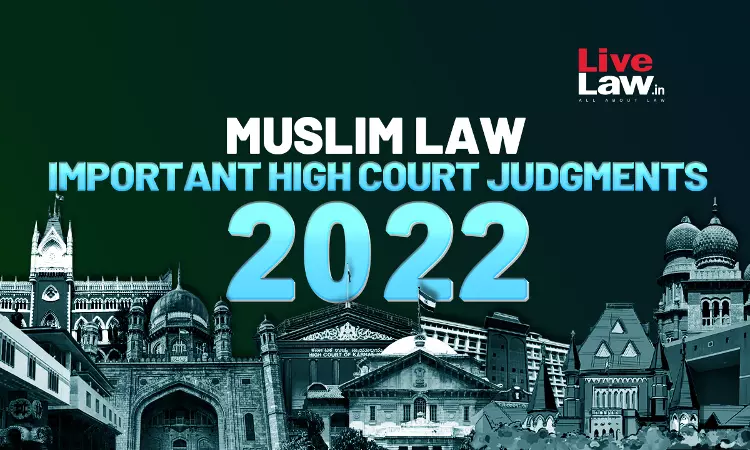Next Story
10 Feb 2023 9:55 AM IST
LiveLaw brings to you a compilation of important judgments on Muslim Personal Law from the year 2022.Allahabad High CourtDivorced Muslim Woman Can Claim Maintenance From Husband U/S 125 CrPC As Long As She Doesn't Remarry: Allahabad High CourtCase title - Razia v. State of U.P. [CRIMINAL REVISION DEFECTIVE No. - 475 of 2008]Case Citation: 2022 LiveLaw (All) 179Reiterating the law laid down in...

